This week's best things
Chatbots, controversy, and what a viral side project might tell us about tech and trust in museums. Plus: open working, age verification, digital experiments, and AI that browses for you. Also: I’m planning a new community space and finally started Martyr! by Kaveh Akbar.

Last weekend we went to see some pals at their in Värmland which was really really Swedish, and very lovely.
Here are some other good things (this newsletter can get cut off in some email clients, view the whole thing online here).
What I Learned Going Viral On Museum Twitter
Remember last year when an AI engineer launched a side project that allowed you to have conversations with objects in the British Museum collection and as a result seemingly all of the museum sector got very angry?
Well, the AI engineer in question, Jonathan Talmi has written a reflection on this experience. His post is from February and there are some interesting (and not un-controversial) observations from him in there about the sector, and the sector's relationship with new technologies.
"Why did everyday people think it was good, while GLAM workers thought it was bad? Why did people resent the idea of someone from outside the field trying something new? There was validity to some of the criticisms, but I felt like something else was at play. [...]
The focus on these easily-changeable parts took away from the discussion about chatbots for museums. There are important research questions surrounding historical accuracy, hallucinations, and form factors, but these questions were overlooked.
The reflexive, unmediated nature of the public reaction also appeared to sprout from a deep-seated anti-tech, anti-AI bias. It was clear that people disliked it without having tried it. Many went in with the sole purpose of trying to get the model to misbehave. The goal was not exploring capabilities, but identifying flaws."
There are also some useful insights about how people actually used the thing:
"It was clear that chat was the most popular feature. Many interactions went on for hundreds of messages. One user got an Aztec mask to help with their Civilization 6 strategy. Another exchanged 167 messages with a Babylonian document in their native Catalan. The conversations were clearly an engaging hook, while search, on the other hand, was less widely used."
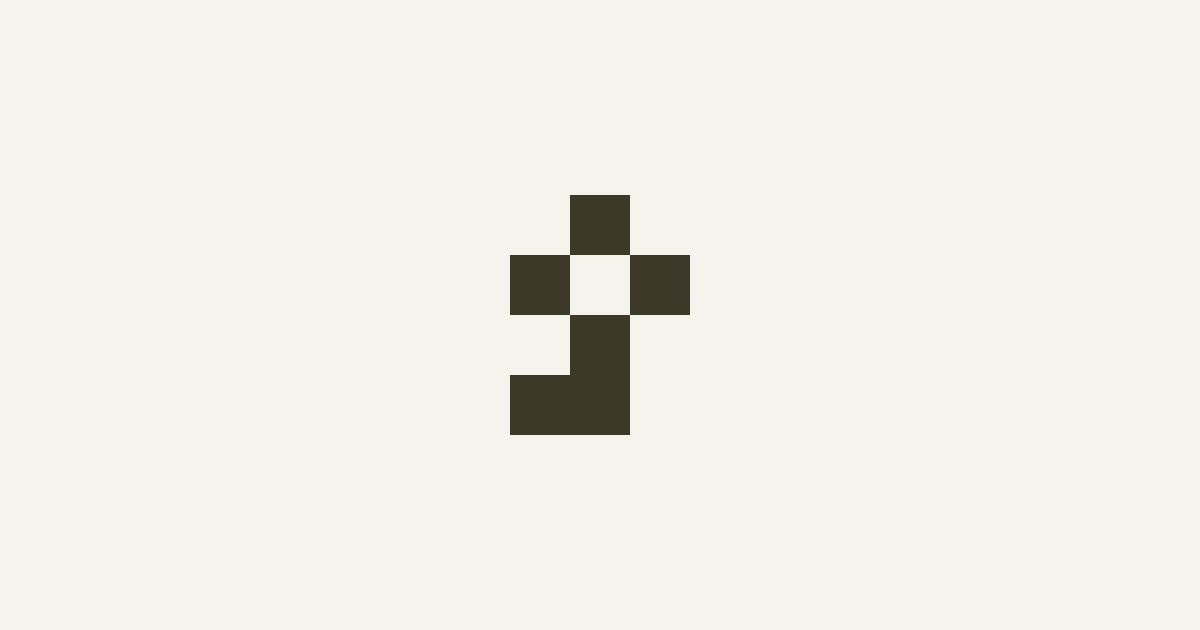
Building a new community for people doing digital
On Monday 11th August, I’m hosting the next session to shape a new community for people doing digital work in the cultural sector (that includes freelancers as well as people working in institutions).
It’ll be a practical discussion focused on what’s worth piloting, and how we might go about it.
Because of the interest across timezones I'm running the session twice, join us!
The session will take place on Zoom, and will last 45 minutes. Register via the links below:
- Monday 11th August: 10:30am - 11.15am (Gothenburg) / 9.30am - 10.15am (UK) / 8.30pm - 9.15pm (Auckland)
- Monday 11th August: 5:00pm - 5.45pm (Gothenburg) / 4.00pm - 4.45pm (UK) / 11.00am - 11.45am (New York) / 8.00am - 8.45am (San Francisco)
Welcome to the Era of Online Age Verification. Are You Ready to Prove Yourself?
The Online Safety Act in the UK came into law in 2023, but some of its more onerous impacts only started to be enforced last week.
Ostensibly introduced to 'protect young people from online harm', it places legal obligations on any 'user to user' or 'search' website/service that might expose users to 'harmful content' including, in some cases, requiring age verification for UK-based users.
This change has already affected the Vagina Museum.
Rachel Coldicutt has some sensible thoughts here.
And Garbage Day highlighted all the ways in which this is both a bad idea and perhaps the end of the internet as we know it.
As ever, politicians and good tech policy don't make particularly successful partners.
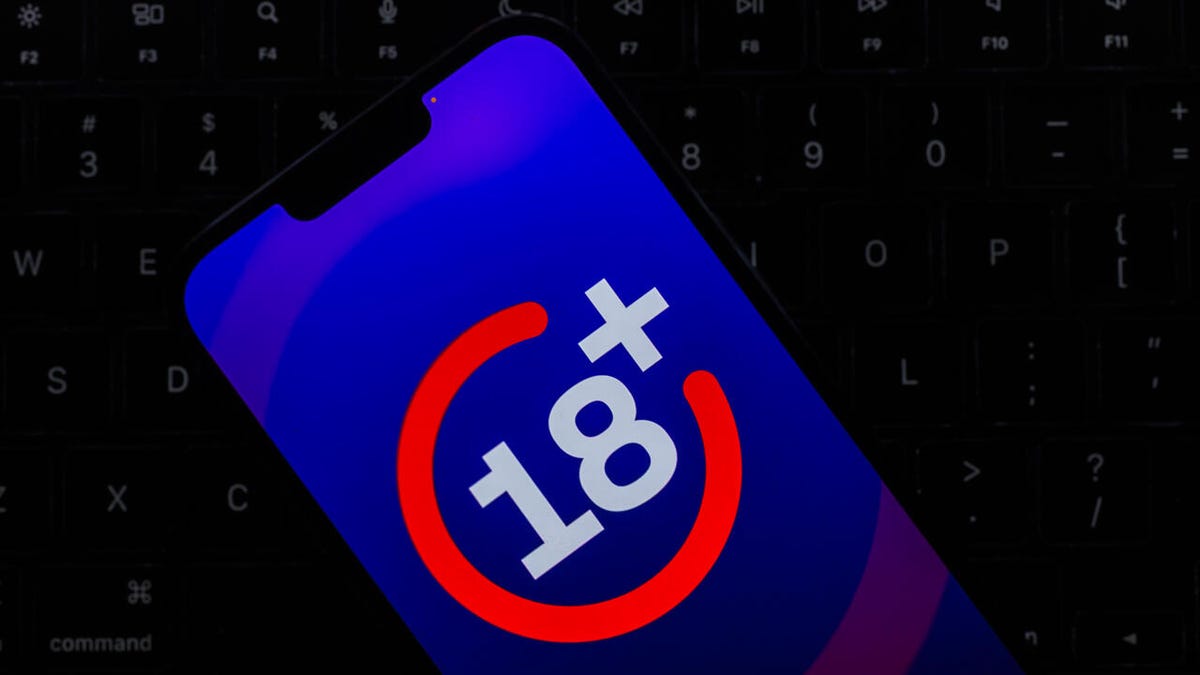
Doing open
Examples of working in the open from Giles Turnbull including lots of links to teams thinking out loud, team remembering, teams communicating creatively, and teams and people using weeknotes well.
Nice to see a few cultural orgs included there.
Transforming the National Library of Scotland’s online presence
A case study from Scottish agency, Storm ID, about their work on the new National Library of Scotland website.
If nothing else it does a good job of reminding us about the value of user-centred thinking, clarity, and consistency.
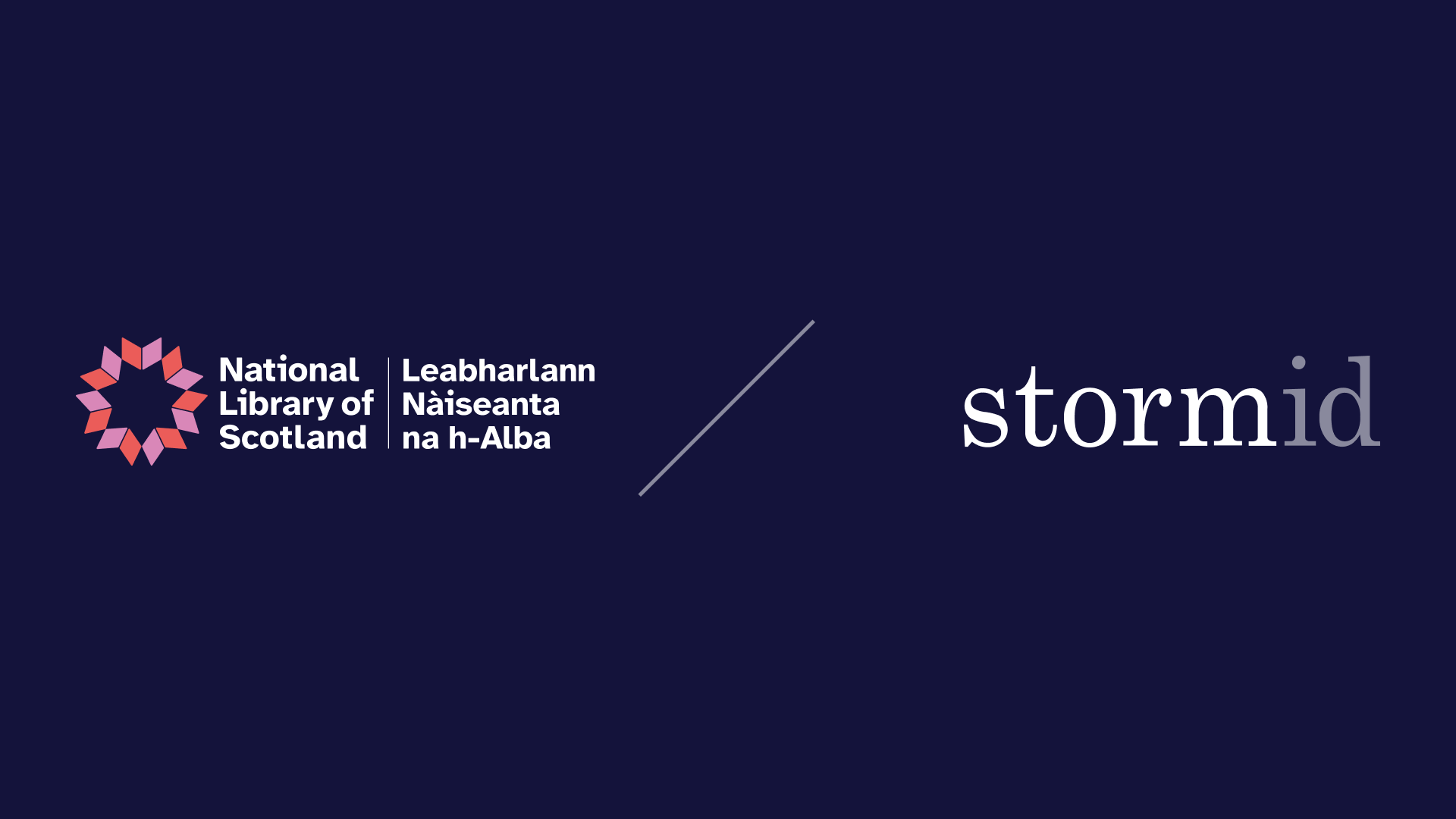
What should I look into next?
Yes, I’m sending this again, and probably will again in the coming weeks, because I really (actually really) want your thoughts.
Earlier this year I published Beyond the Promise, a report on why digital projects fail in the cultural sector.
Next year I’m digging into a new topic. Help me choose where to focus. It takes 15 seconds, tops. Just click the thing.
(Thanks to everyone who already did!)
Clarity by Subtraction: Why the Smartest Move Might Be Saying Less
A good piece from Paul Brown on the value of reducing your options.
"The best leaders don’t just pick a direction.
They make people feel okay, even energised, about everything they’re choosing not to do.
They give people a way to think about tradeoffs. They explain what matters less, and why that’s not failure, it’s design.
That’s the bit most people miss. It’s not just deciding.
It’s framing the decision so others can follow it."

Your Life in Weeks
Spotted via the Web Curios newsletter.
"In 2014, blogger Tim Urban, published a post called "Your Life in Weeks," where he showed a visualization of life as a series of little squares, with each one representing a week. It's a powerful, concise way to visualize an entire human life.
This site helps you create one of those visualizations for yourself. You can use it to track key periods and events in your life, see the progress you've made over time, and easily share your life story with friends and loved ones."
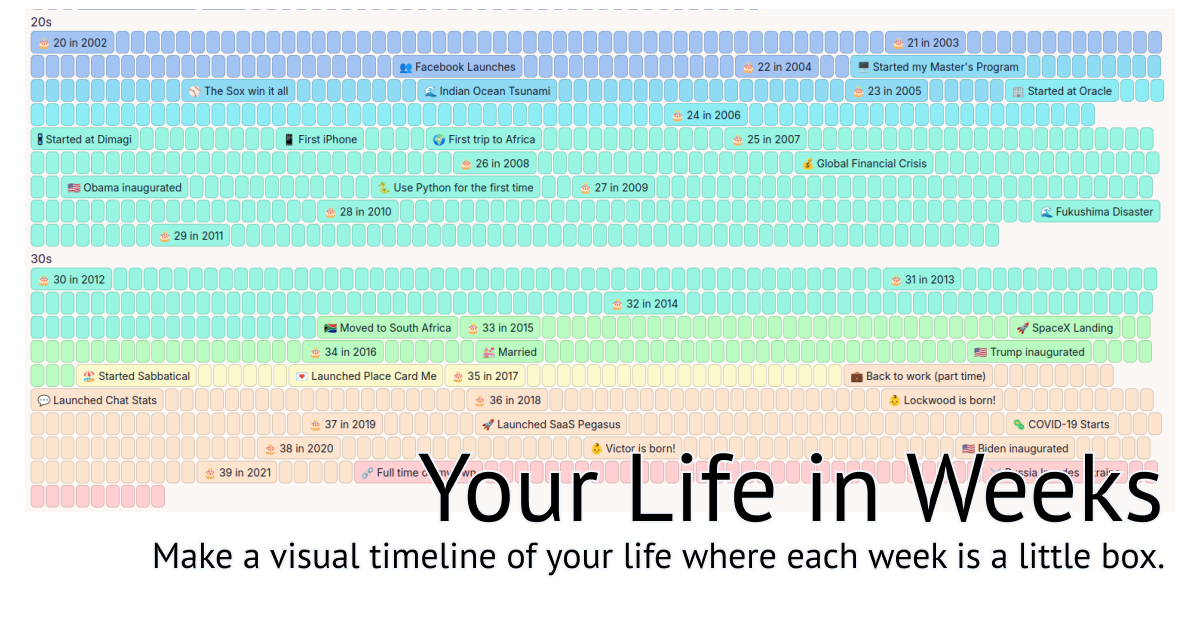
‘There is no political power without power over the archive’
A piece in The Observer which highlights the power of information and stories, and the desire of politicians (particularly, but not only, in the USA) to control, restrict access to, and co-opt that power.
"Why is the US, the land of the free, where the realm of ideas and knowledge has been enabled by the first amendment, now turning on institutions that have been among the most trusted in society?
The first dispatches from the war on libraries began to reach me in 2022. I had recently published Burning the Books, which highlighted the role of libraries in society through a long history of attacks on the written word. Librarians began to send me messages and tagged me on social media, sharing news of assaults on public and school libraries in Florida and Texas. As one librarian put it, my book was fast beginning to look as if it would need updating. A pattern was forming: an epidemic of book banning, driven by groups from the far right of the political spectrum, empowered through social media, and funded, it seemed, by larger and darker organisations."

Practical habits for experimentation
Some ideas (from me) about how to kick-start experimentation where you work.
Experimentation gives us a way to play with new ideas in (sometimes) quick, focused, low-risk ways.
It helps us learn what actually works (and what doesn’t) before we commit time, energy, and budget to bigger changes. It also helps derisk those bigger investments.
And given how fast everything around us is shifting, working in this way doesn't just feel helpful, it feels essential and necessary.

The world ahead 2025 - LM Notebook edition
The Economist have published their 'The World Ahead 2025' which is an annual initiative tracking "new developments in markets, science, technology, politics and more".
This year's edition is notable because they've made the whole thing available in Google's NotebookLM which allows you to interact with the report via a conversational interface and you can get it to present itself in all manner of different formats depending on what you want/need.
I asked it what relevant insights it had for the culture sector and it cited issues including: Restitution of Artefacts Accelerates, Discovering Lost Texts, Managing Overtourism, Demographic Shifts and Cultural Consumption, New Formats Gaining Traction and Streaming's New Reality amongst others. The benefit of this approach being that it cites its sources (and you can choose which of the 70 sources you're including).
David Bauer has some thoughts: "You can read it as an FAQ, as an (AI-generated) podcast, or ask specific questions in the chat interface.
For now, this is more of an experiment than a collaboration, but it clearly illustrates a trend that is already emerging. The article (or video, or podcast) as a journalistic end product is facing competition.
Instead of facts, reporting and analysis being processed into the same end product for all users, they form the basis for a user experience that is more tailored to the needs of the individual user. These needs can be stable, e.g. what forms of presentation a particular user prefers. Or they can be situational: What aspect of a topic do they need to know about at this time?"
There are some examples of NotebookLM in cultural contexts, like this collection of Shakespeare's plays.

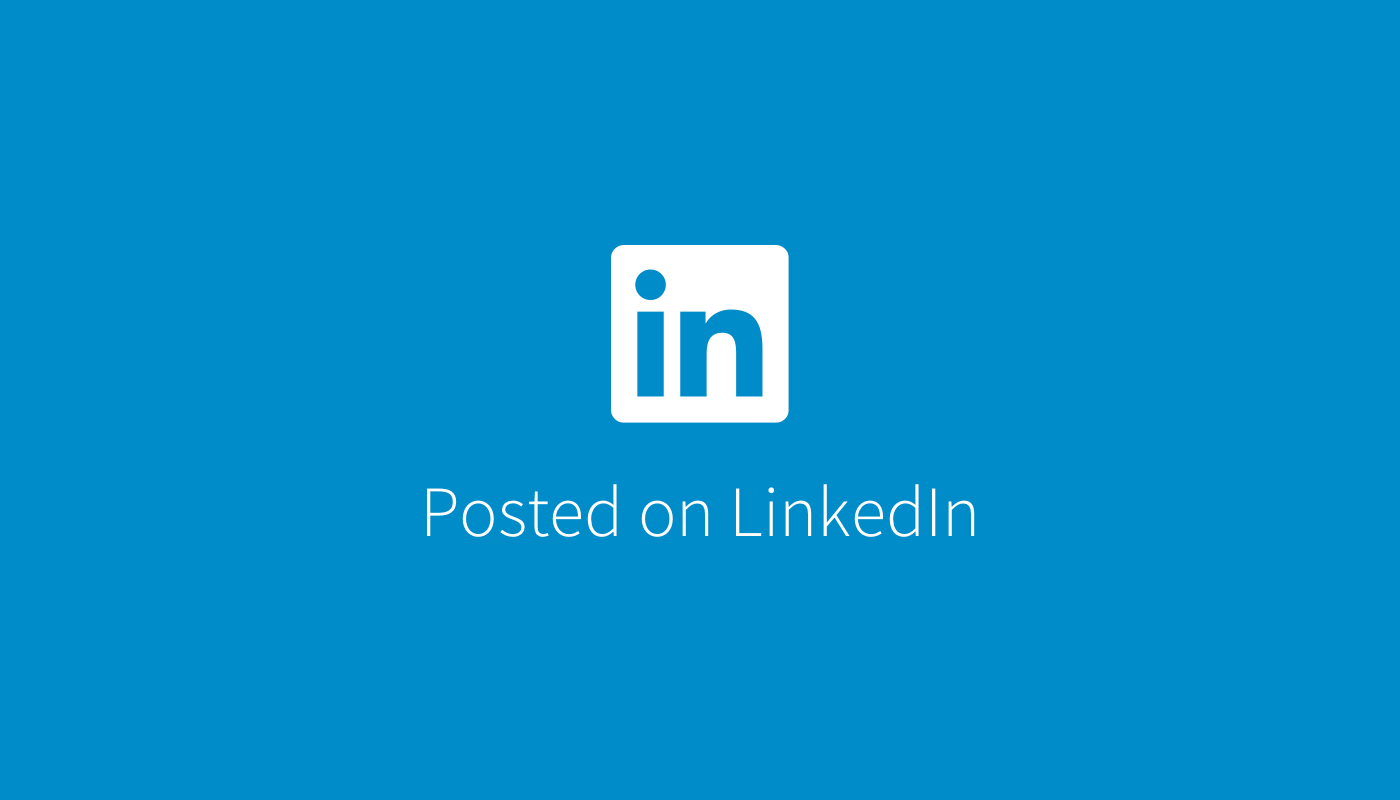
Why millennials and Gen Z are rewriting the rules of arts philanthropy
I'm a millennial and I don't know anyone who would spend £800 a month on anything other than childcare or their mortgage but hey ho, I'm probably not the target market here.
"Forging a new type of membership as a way of providing revenue and aimed at a younger demographic is the London gallery Saatchi Yates, which was cofounded in 2020 by Phoebe Saatchi Yates – the daughter of advertising mogul and mega-collector Charles Saatchi – and her husband, Arthur. For GBP 80 a month, the Saatchi Yates membership, which was founded in June, offers ‘everything from home-cooked dinners at artists’ studios to late night theater performances in an art gallery setting,’ according to a statement. Alongside private events and openings, members are also privy to art history classes ‘with legendary tutors’ and darkroom experiences with photography experts. For GBP 800 a month, the more deep-pocketed can subscribe to a ‘big kahuna’ membership, while a ‘free tier’ membership grants access to a WhatsApp group chat. Uptake has been substantial among a young London art crowd. So, could Saatchi Yates’s scheme be the model millennial and Gen Z donors have been looking for?"

The worst-kept secret in content: Why bad content isn’t actually about content
This piece from Rich Prowse focuses on the messy causes of 'bad content', mirroring many of the thing that I uncovered when doing the Beyond the Promise research.
"Step back for a moment. Think about how that “bad” content got there in the first place. Content is what happens when people, practices, and technology collide. It’s the output of a system, not an isolated problem.
Now, before you think I’m about to blame people, let me stop you. I’ve written about my hatred of binaries, and I’m not about to fall into that trap here. How content comes into existence is nuanced. Messy. And Human."
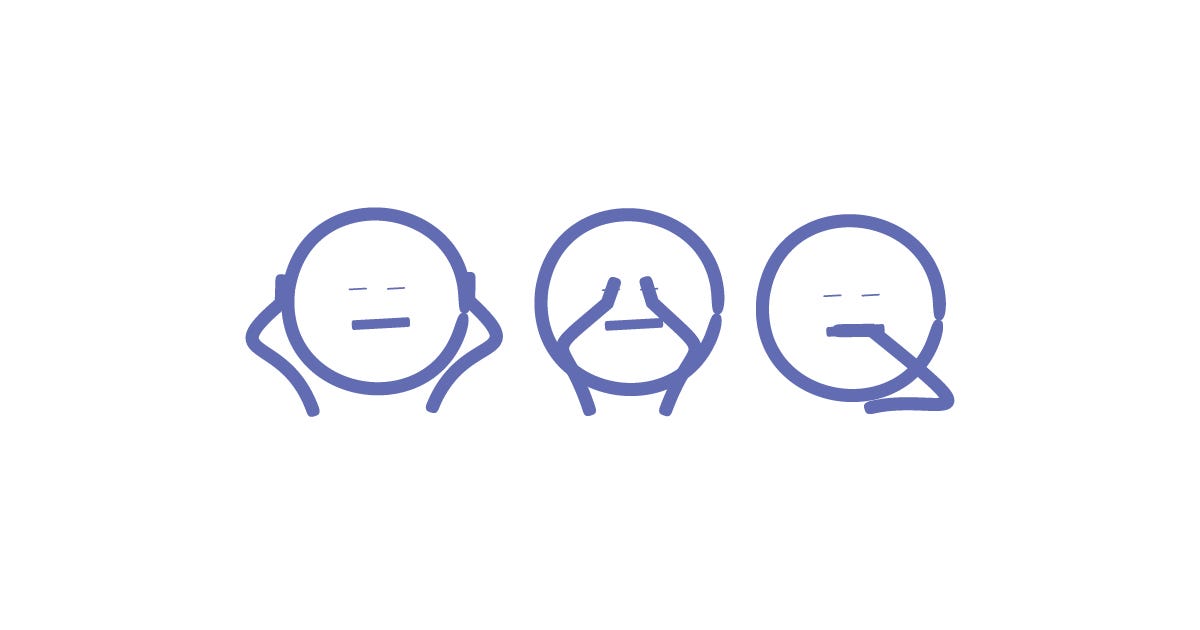
Perplexity’s Comet is the AI browser Google wants
Products with agentic AI (i.e. AI tools that can carry out computing tasks on your behalf) are the next big thing with AI, and recently Perplexity have launched an agentic web browser.
"Perplexity has just launched its agentic answer to Google Chrome — it’s called Comet, and it knocked out a slate of tasks on my behalf, though I think I could’ve done some faster myself. The new AI-powered browser is currently only available to Perplexity Max subscribers or through an early access waitlist, and it’s supposed to simplify the way you browse the web by infusing AI into practically everything you do."
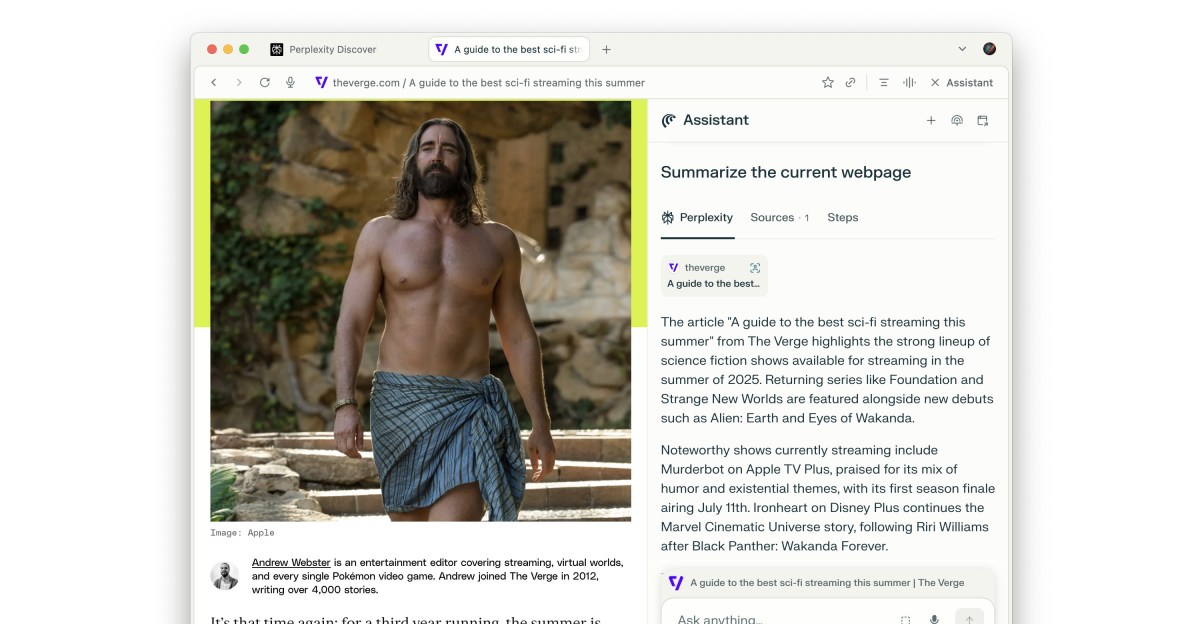
Last week's best things
The 3 most-clicked links from last week's issue were:
This week's consumption
I finished All My Friends Are Superheroes by Andrew Kaufman, which I really didn't enjoy (first time in a long time that's been the case, really nothing to recommend about this). And I started Martyr! by Kaveh Akbar which has been on the list for a long time and thus far is really good.
Thanks to the 'relistening to my entire record collection' phase that I'm going through I spent a lot of time this week listening to Kate Bush, Talking Heads, and Max Richter. Also Ballroom Blitz by Sweet.
We also attempted to watch Too Much on Netflix, it was very bad.
See you next week
Thanks for reading all the way to the end, please enjoy Staggering Beauty, a very strange/pointless website - warning there are a LOT of flashing images (and noises, if you wiggle vigorously enough).
To finish, a quick reminder that I'm a consultant who helps cultural organisations do better digital work. Here are some workshops I offer.
I'm also currently working with organisations on things involving:
- user research to inform digital investment priorities,
- technical strategy,
- leadership development,
- 'critical friend' advice,
- project governance,
- digital strategy,
- and digital readiness.
If it sounds like I could be useful, then let's chat.












